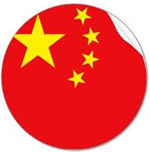 Prem Kumar Panta
Prem Kumar Panta
Chief Editor Weekly Mirror
Great King Prithvi Narayan Shah was really prudent when he propounded ‘Nepal is a yam between the two giant boulders’.
The country tends to face serious challenges to safeguard its genuine interest because of its geo-strategically sensitive location between the two giant neighbours- India and China.
The above mentioned adage, of course, duly encapsulates this fact. And, of late, its underlying meaning has become more pertinent.
India and China recently signed an agreement to boost their border trade at Qiangla/Lipu-Lekh Pass without Nepal’s consent. And, the very move represents hegemonic attitude of the two Asian powers towards their neighbor.
The deal is also strictly against international norms and values given that Lipu-Lekh is a part of Nepal’s far-western territory being blatantly occupied by the southern neighbor since 1962.
The Indian paramilitary force, stationed at the Kalapani area, does not allow Nepali nationals to enter the Kalapani area and the Lipulekh Pass. This amounts to mocking the territorial integrity of Nepal as the Nepalis could not travel through their own sovereign land. Of the total of 60,000 h. land of Nepal encroached by the Indian side, the Kalapani-Limpiyadhura alone accounts for 37,000h.
As the historical maps depict, Nepal-China borderline runs not only to Lipu-Lekh Pass including the Kalapani area, but also extends westward up to Limpiyadhura.
Even though the northern neighbor has been benevolent towards the territorial integrity of Nepal, its latest posture is simply unpalatable.
A Nepal- China boundary agreement signed three and a half decades ago has also recognised that Lipu-Lekh along with Kalapani, an area beyond the origin of the Mahakali River, belongs to the Nepali territory.
The Indian media had reported that India and China agreed to develop Lipu-Lekh as a bilateral trade point during the China visit of then Indian Foreign Minister Jaswant Singh way back in 1999. But, later, then Chinese ambassador to Nepal Zeng Xuyong had clarified at a press meet that Lipu-Lekh was not included in the agreement.
Nevertheless, China has lately ridiculed its own earlier stance on this area by implicitly endorsing the illicit Indian occupation of it.
Sometime back, Chinese Vice Foreign Minister Liu Jianchao stated that “India and China will work with Nepal for its recovery, reconstruction and development endeavours respecting Nepal’s sovereignty and territorial integrity.” But the recent bilateral Sino-India pact has rendered this Chinese assurance hollow and devious.
If the northern neighbour does not correct its dubious stand, Nepal and her people will be compelled to raise a serious doubt over its principal of Panchasheel.
The government and some party leaders have rightly decried the recent deal of India and China as something that undermines the very sovereignty of Nepal. Of course, the condemnation alone is not enough.
The State must effectively leverage its every available diplomatic channel to safeguard its vital national interest. @ weekly mirror


